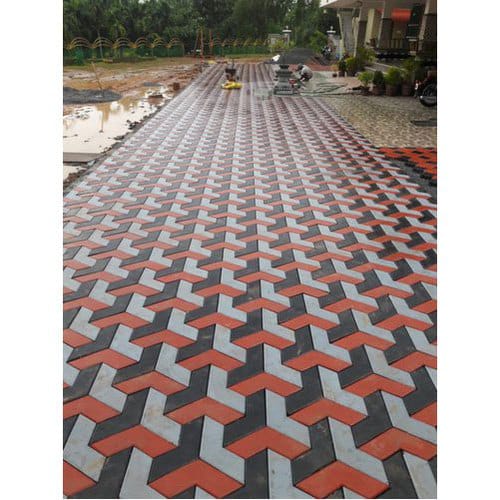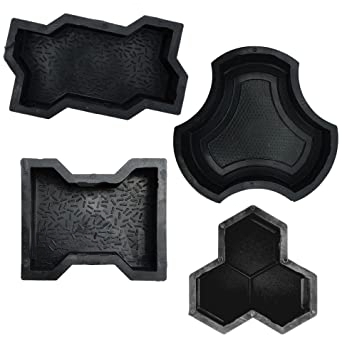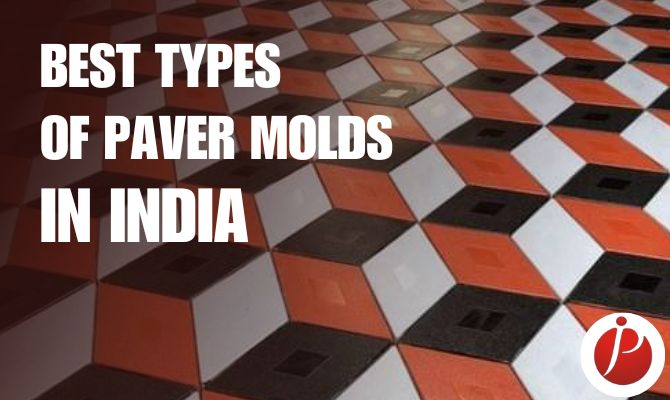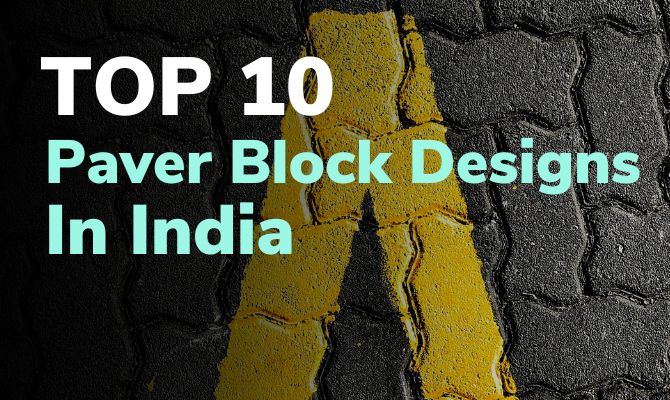- Get The Best Quality Molds From Us
- +91 9687244343
- +91 9687245001
- support@jpmoulds.in

How to Manufacture the Best Quality Paver Block?
June 2, 2023Best Types of Paver Molds In India
Want to know about paver molds & their types? In this article, we will discuss the type of paving blocks and best designs, with manufacturing techniques.
But let us first understand what a paver block is.
What is a Paver Block?
Paver blocks are one of the best ways to easily make beautiful pavement. A paver block is nothing but a concrete/stone block that can easily fit beside each other to make specific patterns. These are interlocking pavement blocks which come in different colors, shapes & sizes.

Moreover, these blocks can form a great pattern when they are paved. Good Color combinations and simple and complex paver laying patterns make the pavements look very appealing to the eyes and mind. One might often find it on the footpaths, on petrol pumps, on government properties & sometimes even on the roads.
Modern designs of paver blocks are made in such a way that they interlock with ease, leaving gaps between two pavers for weight distribution and resilience.
Furthermore, it is one of the most flexible pavement options, with over 160 designs and finishes, you can pick the best design for you.
Now that you know about what paver blocks are, let us understand how these blocks are made.
How Paver Blocks are made?
The next big question that comes to our mind after reading the broad discussion on how are paver blocks manufactured?
Pavers can be manufactured in two primary ways:
1. Hydraulic Press Machines:
Hydraulic machines use hydraulic pressure created by hydraulic fluids to bend the input material or mixture into desired shape and size.

The Mother Mold that is used in these machines plays a critical role not only in size and shape retention but also in product quality, shine, and fitting. Pavers are made by hydraulic press machines only in some cases according to the government guidelines:
- The strength of the pavers is not much of a necessity.
- Regular design with no color is required.
- A huge quantity of pavers is required.
If any two of the above three conditions are satisfied, Paver Blocks made by hydraulic press machines can be obtained and laid.
2. Paver Molds:
This is the most popular way to make paver blocks. Paver blocks are manufactured by pouring the concrete mix into the paver molds. Then, once the concrete mix dries, the paver block is de-molded from the paver mold.
There are 2 types of paver molds:
- Rubber paver molds.
- Plastic paver molds.
Let us get into the details of these paver molds.
Types of Paver Molds
Rubber Paver Molds:
Rubber paver molds are today, the best way to manufacture pavers. They overcome every limitation of other ways of manufacturing pavers while offering more advantages against other ways. Rubber paver molds also have two subtypes: a. PVC Molds b. Natural Rubber Molds.

PVC paver molds are the best type of paver molds and are widely used in India. PVC is considered one of the most versatile polymers due to its wide range of applications.
It possesses a high hardness variant, allowing it to be utilized in the production of both soft articles and robust, tensile goods. Its usability depends on the specific requirements and purposes of the desired products.
The compound used to make molds for pavers is between soft and semi-soft. It has a hardness quotient of 65 to 68. Paver molds manufactured from this compound last for about 4.5 years and even longer.
Pavers manufactured in these molds excel in various aspects such as shine, strength, finishing, shape retention, and most importantly, fitting.
On the other hand, natural rubber molds are made out of natural Kerala rubber. These molds are used mostly in southern India where Kerala Rubber is found in abundance and is cheaper to manufacture molds from it.

The work life of these molds is typically between 1 year and 2.5 years. However, the major problem they face is constant abrasion caused by repeated paver or tile production processes.
This continuous abrasion eventually leads to erosion of the molds. Moreover, these paver molds are way costlier than PVC paver molds.
Plastic Paver Molds
Plastic molds are highly sought after for manufacturing paver blocks, ranking second in popularity. Their appeal lies in their lighter weight, lower cost, and relatively better performance compared to hydraulic-pressed paver blocks. These molds are created using an injection molding machine. The weight of plastic molds typically ranges from 100 grams to 380 grams, varying based on shape, size, and quality.
Plastic pavers are the most economical molds primarily due to their reduced weight and shorter lifespan. Close monitoring is necessary during the paver production process to ensure their proper functionality. While plastic is a rigid material that retains its shape well, its lack of flexibility makes it prone to breakage. As a result, plastic molds are considered less reliable due to the higher chances of damage or breakage.
Plastic pavers molds necessitate careful handling and attention due to their inherent limitations. Despite their advantageous shape retention properties, the lack of flexibility poses a risk of fractures. Consequently, their reliability diminishes, raising concerns about their overall durability and longevity.
Plastic molds range anywhere from INR.25/piece to INR.90/piece depending upon the quality.
Final Words
In summary, PVC and natural rubber molds are top choices for paver block production due to their durability and performance. Plastic molds are a cost-effective option but require careful handling. Understanding the various types of paver molds can help in making informed decisions when it comes to choosing the right mold for manufacturing high-quality paver blocks.


